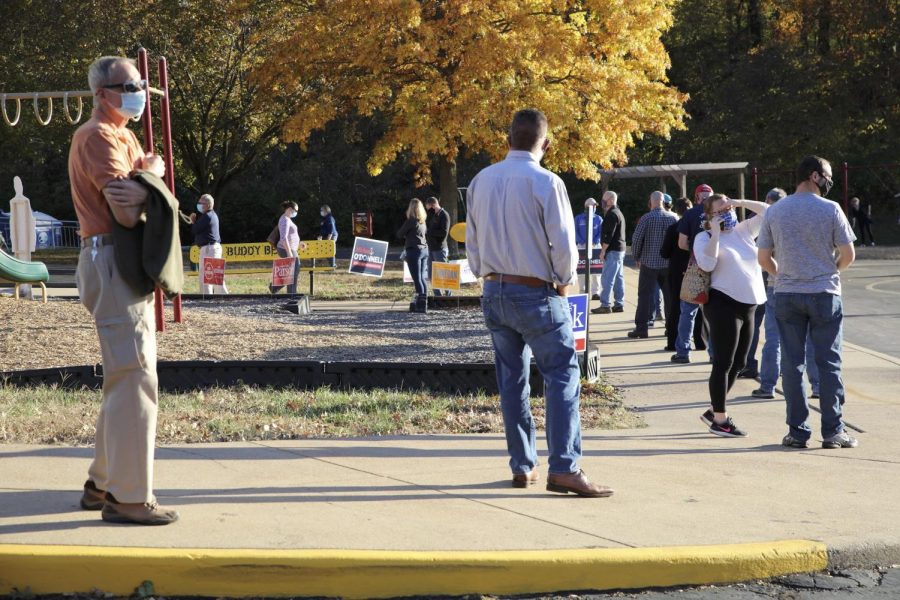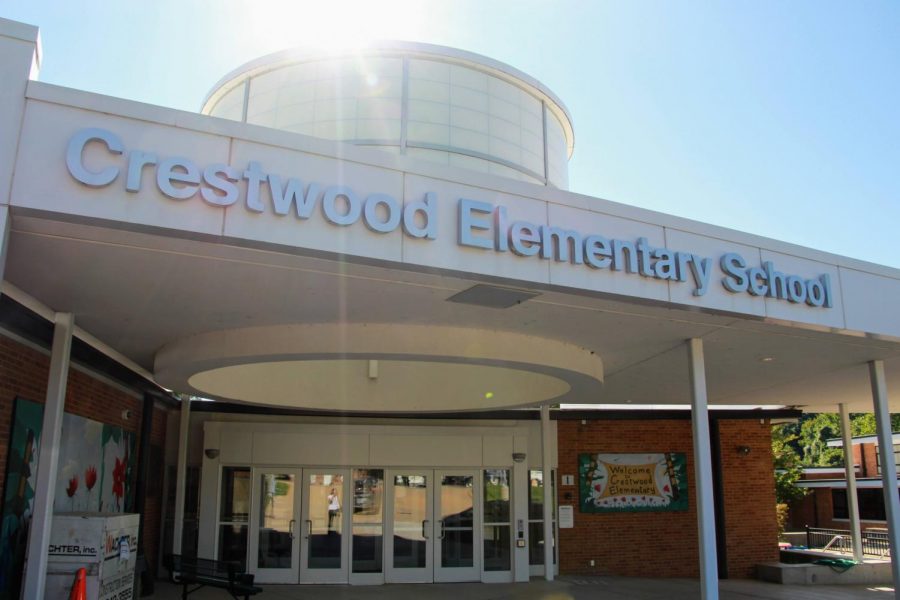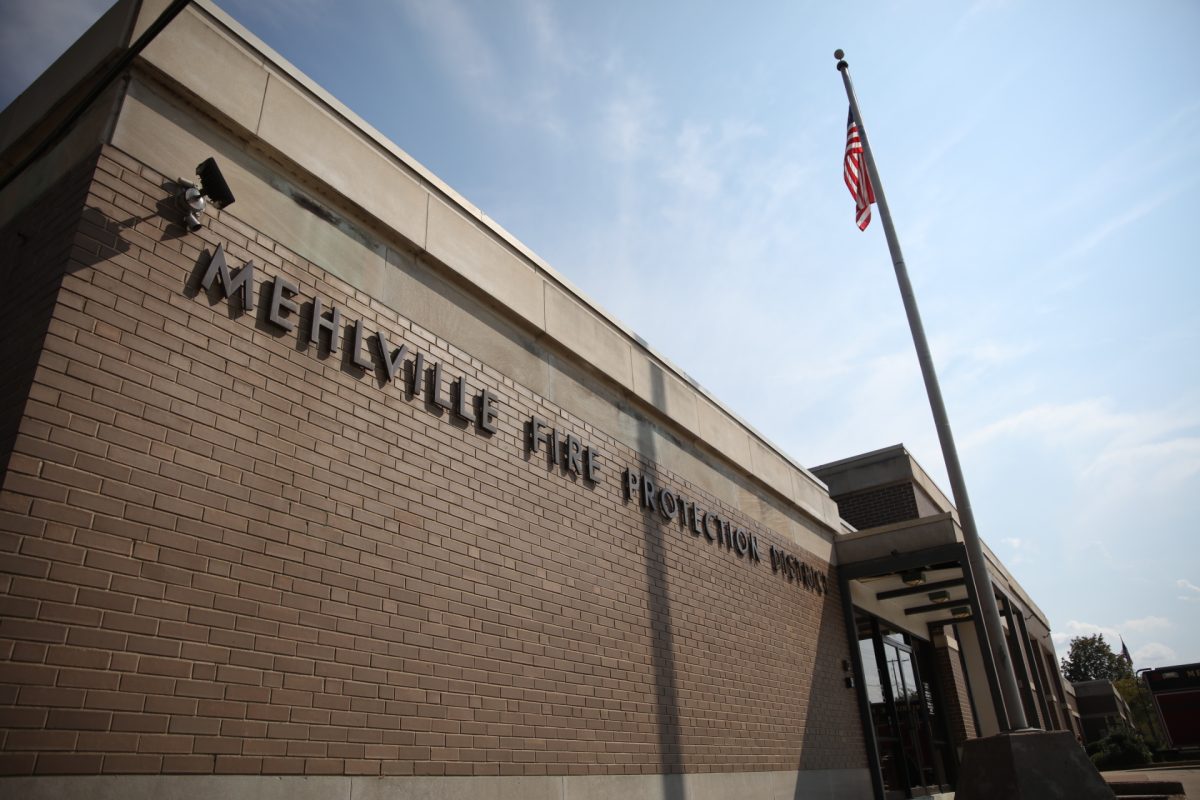A funding scenario to finance a four-phase plan to make the Mehlville School District a high-performing district no longer will work, Superintendent Terry Noble recently told members of a district committee.
The four-phase plan and the accompanying funding scenario were formulated during the COMPASS — Charting the Oakville-Mehlville Path to Advance Success-ful Schools — community-engagement program that began in April 2007 and concluded in June 2008 when the recommendations were presented to the Board of Ed-ucation.
After public input was gathered during numerous community-engagement sessions conducted at Bernard Middle School, the COMPASS Facilitating Team drafted the four-phase plan. In June 2008, the Facilitating Team recommended two ballot measures — a transfer of 31 cents per $100 of assessed valuation from the debt-service fund to the operating fund — which later became Proposition T — and a 37-cent tax-rate increase.
In the Nov. 4 election, Prop T was ap-proved by voters. The measure did not increase the Mehlville’s tax rate, but extended the district’s bonded indebtedness by 15 years — to 2029. But the school board rejected the Facilitating Team’s proposed 37-cent tax-rate increase after a July survey found that 59 percent of 400 participants would oppose it.
Superintendent Terry Noble told the COMPASS Facilitating Team May 26 that Proposition T stabilizes the district’s financial situation, but essentially will do nothing to implement the first phase of the COMPASS recommendations.
“… When the economy went sour, the board I think wisely chose not to go to the voters for a tax increase. So we did go for the no-tax-increase Prop T. That’s why we didn’t get to fund phase one of this plan,” he said.
Besides the 37-cent tax-rate increase that would have restored the district’s tax rate to its 2006 level of $3.64 per $100, the district would have conducted elections in No-vember 2010, 2012 and 2014.
“In normal years — whatever normal is — this district traditionally has an increase in assessed value during the reassessment year and that’s every other year. The county assessor reassesses the property and we normally see a growth in assessed value …,” Noble said. “Through the Hancock Amend-ment, any time our assessed value goes up, we roll our levy back so that we don’t capture more than a cost-of-living increase.
“That’s what usually happens, and generally, we think about eight cents is what we usually in a normal year have to roll our levy back. So to fund this, we were going to ask voters to allow us to waive the rollback.
“In other words, if we had a normal year where the assessed value increases, we’d go to the voters and say: Please allow us to keep at least eight cents of that rollback. That’s usually about what it is, and that would be enough money for us to finance each of these phases. And we would do that every other year, until we get through phase two, three and four. So you can’t do phase two until you’ve done phase one …”
Because of a drop in the school district’s assessed value, the plan to seek the waiver rollback in 2010, 2012 and 2014 no longer will work, Noble said.
“Our total assessed valuation decreased this year — in 2008 — by 3 percent total,” he said. “Now the homeowners saw an 8-percent average drop, but overall we actually had an increase in assessed value in commercial property and in agricultural property, and when you combine that with the decrease in assessed value for the homeowner, then you come up a total decrease of 3 percent. So that means our blended tax levy for this coming year will increase from $3.28 (per $100 of assessed valuation) to $3.38.
“That’s the flip side of the Hancock Amendment. We always roll back when assessed value goes up. But we are protected; we’re held harmless so that we can at least collect the same amount of local revenue in years when assessed goes down by being allowed to roll (the tax rate) up. You think about all the years we’ve rolled back, this is the first time we’ve actually rolled up … We don’t gain any new revenue, but it takes $3.38 of levy this coming year to generate the same amount of local revenue that we received last year at $3.28.
“So that makes our phasing … scenario — phasing plan — it doesn’t work any more because we were asking voters to restore the 2006 levy, which was $3.64, but that doesn’t work anymore because that would only be a 26-cent increase … and we were saying we needed 37 cents … We’re projecting zero growth in local revenue and state revenue for the next two years, at least, I mean just based on the economy ..”
Given that, Noble said, “… Where do we go from here? What is it in the plan that maybe we should modify, if anything, and how do we finance it? …”








